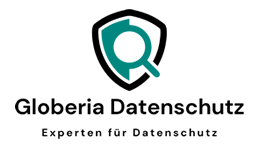
What Globeria Data Protection offers - GDPR audit by DSB in Germany
Key Features of GDPR Audit and Compliance by Appointing Certified DPO
The "Data Protection Audit by Certified DPO in Germany" serves as a comprehensive review of an organization's data handling processes to ensure compliance with relevant data protection laws such as GDPR and other standards. This audit carefully examines the methods used to collect, store, use and secure data. The goal is to uncover potential risks and ensure that both privacy protection and data integrity are consistently maintained.
What do DPO do during the GDPR audit? - Data protection audit by DPO in Germany
Data Protection Audit Services in Germany
Our Data Protection Audit Services in Germany offer a comprehensive assessment of your organization's compliance with GDPR regulations. We meticulously evaluate your data protection measures, identify potential vulnerabilities, and review your data handling processes to ensure they meet the highest standards of privacy and security. Our team of experts conducts thorough audits, including analysis of data lifecycle, security protocols, and data retention policies. We provide actionable insights and recommendations to enhance your data protection framework, helping you mitigate risks and safeguard personal data effectively. Trust us to ensure your business adheres to all legal requirements and best practices in data protection.
First Review
We begin by defining the scope and objectives of the audit and gathering key working documents to thoroughly understand the intricacies of the business operations. This fundamental step allows us to effectively shape our approach and audit focus, ensuring comprehensive coverage and alignment with business objectives.
Data Mapping
Through careful documentation, we map out all data sources and track the data flow paths within the organization. This process allows us to identify potential weaknesses and gaps in data management, laying the foundation for a thorough and targeted audit strategy.
Verification of compliance with legal requirements
We review policies, procedures and practices against relevant data protection legislation to accurately assess the company’s compliance status. By aligning operations with legal requirements, we mitigate legal risks and build trust among stakeholders.
Risk Assessment
Systematically identifying and assessing potential threats and vulnerabilities is critical to protecting the company’s data assets. Our comprehensive risk assessment enables us to prioritize risk mitigation efforts, allocate resources to areas of greatest impact, and ensure resilience to new threats.
Review Of Security Measures
Analyzing encryption protocols, access controls, and other security measures is critical to maintaining a solid data protection defense. By evaluating the effectiveness of existing security measures, we can uncover gaps and vulnerabilities and make targeted improvements to strengthen the organization’s defenses against unauthorized access and data breaches.
Data Processing Practices
Reviewing data collection and retention practices ensures compliance with privacy regulations and ethical standards in data handling. By evaluating data processing practices, we minimize the risk of data misuse, unauthorized access and non-compliance, thereby protecting sensitive information and maintaining customer trust.
Analysis Of Data Protection Policy
Reviewing privacy notices and consent mechanisms is critical to ensuring transparency and compliance with data protection laws. By assessing the clarity and adequacy of privacy policies, we mitigate legal and reputational risks and promote trust among customers, employees and other stakeholders.
Technology-Audit
Assessing the effectiveness of security software and system configurations is critical to identifying and mitigating technology vulnerabilities. By assessing the company’s technology infrastructure, we uncover potential vulnerabilities and recommend improvements to increase data security and resilience to cyber threats.
Reporting and Recommendations
We summarize our findings in a comprehensive report and provide actionable recommendations to address identified vulnerabilities and improve data protection measures. By offering strategic guidance and practical solutions, we empower the organization to proactively mitigate risks and maintain the highest standards of data security and compliance.
Globeria - Agency for Data Protection Audit, Data Protection Audit from Qualified DPO in Germany
Frequently Asked Questions about the Data Protection Audit by DPO
Understanding the intricacies of a Data Protection Audit by a Data Protection Officer (DPO) can be challenging. Here, we address common queries to help you navigate the process. What does a data protection audit involve? How long does it take? What areas are examined during the audit? How do the findings impact my business? We also cover questions about compliance with GDPR, necessary documentation, and steps to address identified vulnerabilities. Our aim is to provide clarity and ensure you are well-informed about the importance, process, and benefits of a thorough data protection audit.
Moreover, a data protection audit demonstrates your commitment to safeguarding personal data, which can enhance your organization’s reputation and build trust with customers, partners, and stakeholders. It also ensures that you have the necessary policies and procedures in place to handle personal data responsibly, thereby avoiding costly fines and legal penalties associated with non-compliance.
Additionally, the audit provides valuable insights into your data lifecycle management, security protocols, and retention policies, enabling you to implement best practices and maintain robust data protection standards. Overall, it is a proactive step towards maintaining data integrity and protecting individual privacy.
In cases where an organization does not have an in-house DPO, external consultants or data protection specialists can be engaged to conduct the audit. These professionals bring a wealth of experience and an objective perspective, ensuring a thorough and unbiased assessment of data protection measures.
The audit process includes evaluating data processing activities, security protocols, and retention policies to identify any non-compliance with GDPR standards, as outlined in Articles 24, 25, and 32. This ensures that organizations maintain robust data protection practices, mitigating risks and safeguarding personal data.
When an organization falls under these criteria, a data protection audit conducted by a DPO becomes crucial. The DPO is responsible for monitoring compliance with GDPR, which includes conducting regular data protection audits. Articles 39 and 24 of the GDPR outline the DPO's tasks, emphasizing their role in ensuring adherence to data protection laws and policies.
For organizations not required to appoint a DPO, it is still highly recommended to conduct regular data protection audits, either internally or with external experts, to ensure compliance with GDPR and to protect personal data effectively.
Preparation and Planning
- Initial Assessment: Understanding the organization's structure, data processing activities, and the scope of the audit, including identifying key stakeholders and relevant data protection policies.
- Audit Plan Development: Creating a detailed audit plan, outlining objectives, scope, methodology, and timeline, guided by Article 24 of the GDPR.
Data Inventory and Mapping
- Data Inventory: Compiling an inventory of all personal data processed by the organization, including identifying data sources, data types, processing activities, and data flows.
- Data Mapping: Creating a data flow map to visualize how personal data moves through the organization, in compliance with Article 30 of the GDPR.
Risk Assessment
- Risk Analysis: Conducting a risk assessment to identify potential vulnerabilities and threats to personal data.
- Data Protection Impact Assessment (DPIA): Conducting a DPIA for high-risk processing activities, as mandated by Article 35 of the GDPR.
Review of Policies and Procedures
- Policy Evaluation: Reviewing existing data protection policies, procedures, and practices to ensure they comply with GDPR requirements.
- Security Measures: Evaluating technical and organizational security measures to ensure data protection, in accordance with Article 32 of the GDPR.
Compliance Check
- Legal Compliance: Verifying that data processing activities comply with GDPR principles, including those in Articles 5-11.
- Third-Party Assessments: Reviewing contracts and data sharing agreements with third-party processors and controllers to ensure they include necessary GDPR clauses, as required by Articles 28 and 29.
Employee Training and Awareness
- Training Programs: Assessing the effectiveness of data protection training programs for employees, as emphasized in Article 39.
- Awareness Campaigns: Evaluating ongoing awareness campaigns to ensure employees remain informed about data protection best practices and regulatory updates.
Documentation and Reporting
- Audit Report: Preparing a comprehensive audit report documenting findings, identified risks, and recommendations for improvement.
- Management Review: Presenting the audit report to senior management and relevant stakeholders to facilitate decision-making and resource allocation for implementing corrective actions.
Implementation and Follow-Up
- Action Plan Execution: Implementing the recommended corrective actions and improvements.
- Follow-Up Audits: Conducting periodic follow-up audits to monitor progress and ensure sustained compliance, as emphasized in Article 24.
Continuous Monitoring and Improvement
- Ongoing Monitoring: Establishing mechanisms for ongoing monitoring of data protection practices, including regular reviews, audits, and updates to policies and procedures.
- Feedback Loop: Using feedback from audits and monitoring activities to continuously improve data protection measures and address emerging threats and regulatory changes.
A data protection audit report is a comprehensive document that assesses an organization's compliance with GDPR and outlines areas for improvement. The key components include:
- Executive Summary: A brief overview of the audit's scope, objectives, and key findings.
- Methodology: Detailed description of the audit process, including data collection methods and assessment criteria, aligned with GDPR Article 24, which emphasizes appropriate technical and organizational measures.
- Findings and Analysis: In-depth analysis of data processing activities, security measures, and compliance with GDPR principles such as lawfulness, fairness, transparency (Articles 5-11), and data subject rights (Articles 12-23).
- Risk Assessment: Identification and evaluation of risks associated with data processing, including potential vulnerabilities and their impact, as per Article 32.
- Recommendations: Actionable suggestions for addressing identified issues and enhancing data protection practices.
- Compliance Check: Verification of adherence to GDPR requirements, including documentation and third-party agreements (Articles 28 and 30).
- Conclusion: Summary of overall compliance status and next steps for remediation and continuous improvement.
This report ensures transparency and accountability, aiding organizations in maintaining robust data protection standards.


